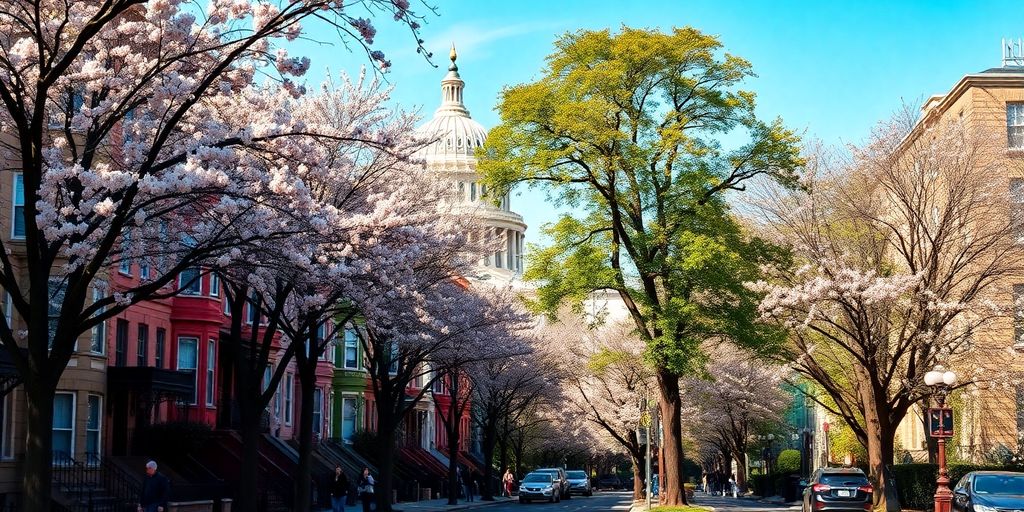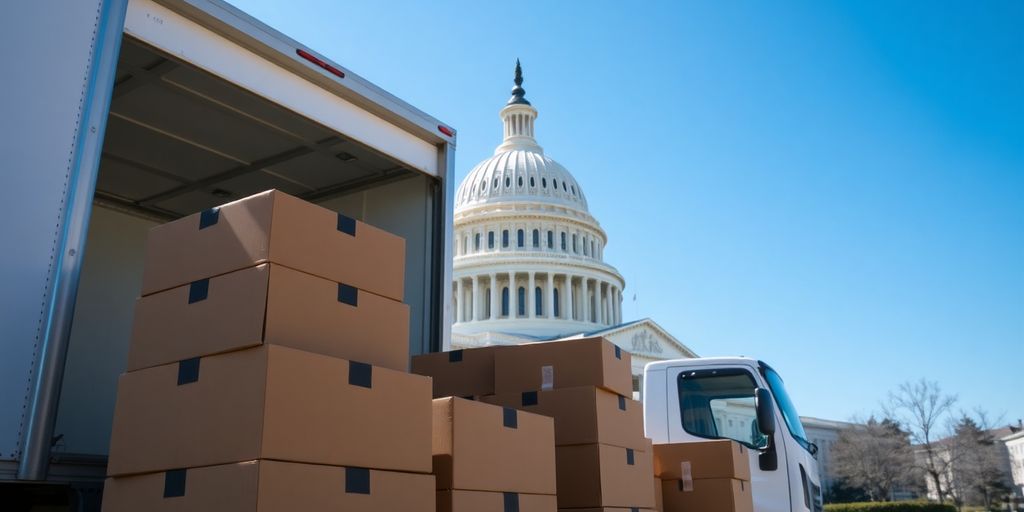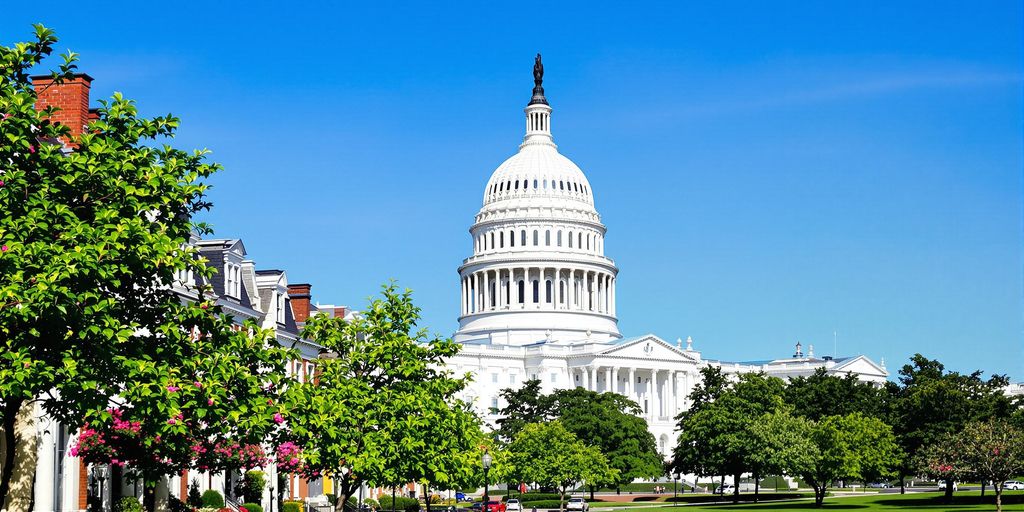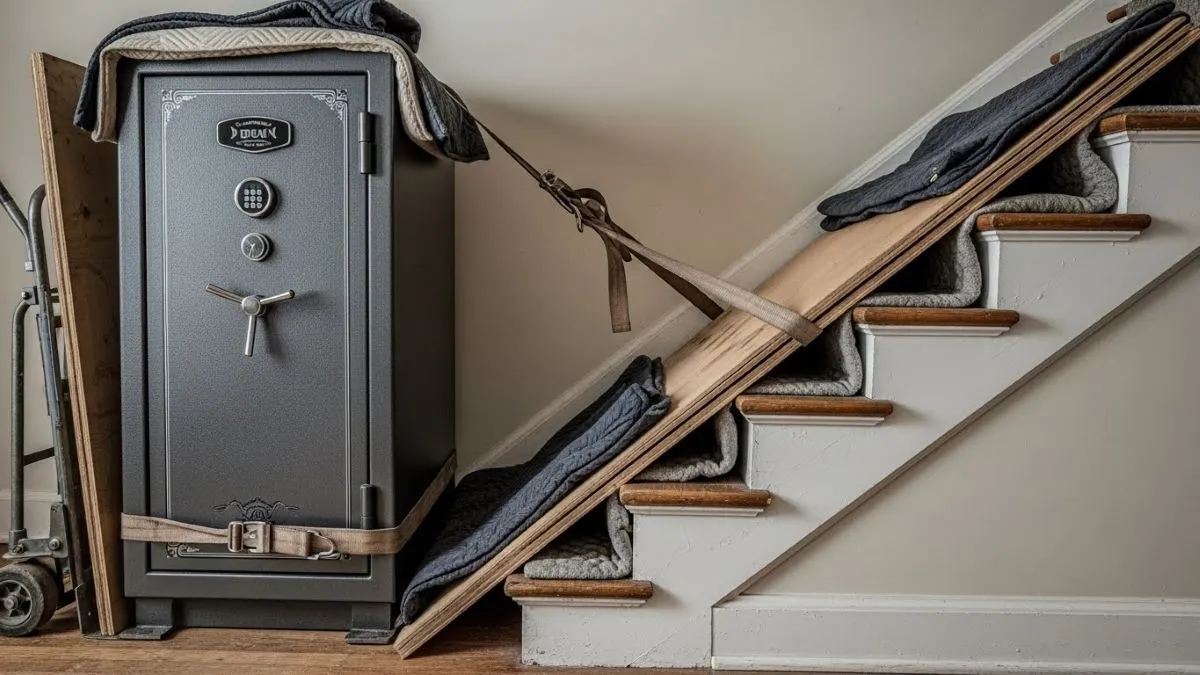Moving to Capitol Hill: Essential Insights Before Your Relocation

Rassul Yeshpayev
July 18, 2025
Rassul Yeshpayev
July 18, 2025

So, you're thinking about Moving to Capitol Hill: What You Need to Know Before You Relocate? It's a big step, for sure. Capitol Hill is a cool spot, full of history and a real neighborhood feel, but like any big city move, there are things you gotta figure out first. From the cost of stuff to how to get around, this guide will give you the lowdown. We'll talk about what makes this area tick, how to keep your wallet happy, and even some tips for getting settled in. Basically, all the stuff I wish someone told me before I packed my bags.
Key Takeaways
- Capitol Hill has a unique vibe, mixing old-school charm with modern city life.
- The cost of living here can be high, so make sure you budget carefully for housing and daily expenses.
- Picking the right neighborhood is a big deal; do your homework to find a place that fits your needs.
- Moving day needs good planning, especially when it comes to hiring movers and understanding local rules.
- Settling in means getting to know the area and connecting with people to feel at home.
Understanding Capitol Hill's Appeal
Overview of Washington D.C.
Okay, so D.C. isn't just about the White House and Congress. It's a real city with neighborhoods, culture, and, you know, actual people living their lives. It's divided into quadrants (NW, NE, SW, SE), which can be confusing at first, but you'll get the hang of it. The city has a unique vibe, blending historical significance with modern urban living.
- The Metro system is pretty good for getting around.
- Traffic can be a nightmare, especially during rush hour.
- Summers are hot and humid, prepare yourself.
D.C. is more than just politics; it's a place where people from all walks of life come together. It's a city of museums, parks, and diverse communities. Don't let the political stereotype fool you; there's a lot to discover here.
Why Relocate to D.C.?
Why move to D.C.? Well, there are a bunch of reasons. For some, it's the job market, especially if you're in government, law, or government contracting. For others, it's the culture, the history, or the fact that there's always something to do. Plus, you're close to a lot of other cool cities like Baltimore, Philly, and NYC.
- Strong job market, especially in the public sector.
- Tons of museums and historical sites.
- A surprisingly good food scene.
Things to Know Before Moving to Washington
Alright, before you pack your bags, here are a few things to keep in mind. First, D.C. is expensive. Like, really expensive. Second, the humidity is no joke. Third, get ready for a lot of tourists. But don't let that scare you off. D.C. is a great place to live if you're prepared. Also, learn the quadrants! It will save you a lot of headaches. Metro fares can fluctuate, so get a SmarTrip card ASAP.
- Cost of living is high.
- Humidity is intense in the summer.
- Learn the quadrant system (NW, NE, SW, SE).
Navigating the Cost of Living

Moving to a new city always involves thinking about the money side of things. Washington D.C., and Capitol Hill specifically, is no exception. It's important to get a handle on what things actually cost so you can plan accordingly. Let's break down some key areas.
Cost of Living in Washington DC
Okay, let's be real: D.C. is not cheap. The overall cost of living is higher than the national average. You'll notice it in pretty much everything, from your rent to your groceries. Here's a quick rundown:
- Housing: This is the big one. Whether you're renting or buying, expect to pay more than you would in many other parts of the country. Location matters a lot.
- Food: Groceries and eating out will also put a dent in your wallet. There are affordable options, but generally, expect to pay a premium.
- Transportation: Public transit is available, but even that adds up. If you're driving, factor in gas, parking (which is a nightmare), and car maintenance. The best places to live in Washington, DC are often walkable, which can help.
- Utilities: Electricity, gas, water, internet – all the usual suspects. Budget accordingly, especially during the hot and humid summers and cold winters.
It's easy to get caught off guard by the higher prices. Make sure you do your research and create a realistic budget before you move. Don't forget to factor in things like entertainment and unexpected expenses.
Budgeting for Daily Expenses
So, how do you make it work? Budgeting is key. Here are some tips:
- Track your spending: Know where your money is going. There are tons of apps that can help with this.
- Cook at home: Eating out is convenient, but it adds up fast. Try to cook more meals at home.
- Take advantage of free activities: D.C. has a ton of free museums and events. Make the most of them!
- Look for deals: Happy hour specials, discounts, and coupons can all help you save money.
Renting Versus Buying in D.C.
This is a big decision. Renting gives you flexibility, but buying can be a good investment in the long run. Here's what to consider:
- Renting: Expect to pay a premium, especially in popular neighborhoods. Be prepared for competition and application fees.
- Buying: The housing market is competitive and expensive. You'll need a significant down payment and good credit. Moving companies DMV can offer insights into cost-effective moving options.
Consider how long you plan to stay in D.C. If it's less than a few years, renting might be the better option. If you're planning to put down roots, buying could be a smart move. Crunch the numbers and see what makes the most sense for your situation.
Exploring Capitol Hill Neighborhoods
Moving to a new city is exciting, but picking the right neighborhood can feel overwhelming. Capitol Hill and its surrounding areas in D.C. offer a variety of vibes, each with its own perks. Let's take a look at some popular spots to help you find your perfect fit.
Popular Neighborhoods to Consider
Capitol Hill itself is a classic choice. It's known for its historic row houses and proximity to the U.S. Capitol. You'll find a mix of families, young professionals, and people who work in government. Eastern Market is a big draw, offering fresh food, local art, and community events. The median home price here hovers around $915K, so it's not the cheapest option. If you are looking for a popular neighborhood in the DC area, this is a great place to start.
Other popular neighborhoods include:
- Navy Yard: Just across the Anacostia River, Navy Yard offers a more modern feel with glass towers and stadium vibes. Rents are slightly lower than Capitol Hill, making it an attractive option for some.
- Adams Morgan: Known for its diverse dining and nightlife, Adams Morgan is a lively spot. It's a bit more mellow these days, but still offers plenty of entertainment.
- Georgetown: With its historic charm, high-end shopping, and waterfront views, Georgetown is one of D.C.'s most sought-after neighborhoods. It's home to Georgetown University and offers a variety of dining and entertainment options.
- Dupont Circle: A vibrant neighborhood with a diverse food scene and bustling nightlife. The area is known for its historic row houses, foreign embassies, and the iconic Dupont Circle Fountain.
Family-Friendly Areas in D.C.
If you're moving with kids, finding a family-friendly area is key. Here are a couple of options to consider:
- Brookland: This neighborhood offers detached houses with actual front lawns, giving it a more suburban feel while still being on the Red Line. It's a good option if you want a bit more space.
- Chevy Chase DC: Known for its quiet streets and active community, Chevy Chase DC is another great choice for families. It's a bit further out, but offers a safe and welcoming environment.
Research Neighborhoods Thoroughly
Before you make a decision, do your homework. Visit different neighborhoods at different times of day to get a feel for the atmosphere. Talk to residents and ask about their experiences. Check out local schools, parks, and amenities. Consider your commute and access to public transportation. Finding the right neighborhood is a personal decision, so take your time and find the place that feels like home. Don't overlook cost of living adjustments when making your decision.
Choosing a neighborhood in D.C. is a big deal. Think about what's important to you – do you want to be close to the action, or do you prefer a quieter, more residential area? What's your budget? What kind of amenities are you looking for? Answering these questions will help you narrow down your options and find the perfect place to call home.
Essential Moving Preparations

Moving can be a real headache, but with some planning, you can make it way less stressful. It's not just about packing boxes; it's about getting organized and making smart choices. Let's break down the key steps to get you ready for your Capitol Hill move.
Choosing the Right Movers
Finding good movers is super important. Don't just pick the first company you see. Get quotes from at least three different companies. Check online reviews and ask for recommendations from friends or family. Make sure they're licensed and insured – this protects you if something gets damaged during the move. Ask about their experience with moves in D.C., since navigating city streets can be tricky. Also, clarify their pricing structure. Are they charging by the hour, or is it a flat rate? Get everything in writing to avoid surprises later.
Timing Your Relocation
When you move can make a big difference. Moving during the summer or on weekends is usually more expensive because that's when everyone else is moving. If you can, try to move during the week or in the off-season (fall or winter). This could save you some money. Also, think about the D.C. weather. Summer can be hot and humid, and winter can bring snow. Plan accordingly. Give yourself plenty of time to pack and prepare. Rushing things at the last minute will only add to the stress.
Understanding Local Regulations and Permits
D.C. has its own set of rules and regulations when it comes to moving. You might need to get a moving permit if you're parking a moving truck on the street. Check with the D.C. Department of Transportation (DDOT) to find out what's required. Some buildings also have specific rules about when you can move in or out, and where you can park. Make sure you know these rules ahead of time to avoid fines or delays. Ignoring these regulations can really throw a wrench in your moving day plans.
Moving to a new city is a big deal. Take your time, do your research, and don't be afraid to ask for help. With a little planning, you can make your move to Capitol Hill a smooth and successful one.
Adapting to Capitol Hill Life
Know the Dos and Don’ts When Moving to Washington DC
Okay, so you've made the leap and moved to Capitol Hill. Congrats! Now comes the fun part: figuring out how to actually live here. It's not just about finding a place and unpacking your boxes. It's about understanding the unspoken rules and embracing the local culture. One of the biggest dos is to learn the Metro system. Seriously, get a SmarTrip card ASAP.
Here's a quick rundown:
- Do: Explore the different neighborhoods. Each one has its own vibe.
- Don't: Block the sidewalk. DC sidewalks can get crowded, especially during rush hour.
- Do: Take advantage of the free museums. Seriously, it's one of the best perks of living here.
- Don't: Be afraid to ask for directions. People are generally pretty friendly and willing to help.
- Do: Try the local food. There's so much more than just politics here.
It's easy to get caught up in the hustle and bustle, but remember to take a breath and enjoy the city. Find your favorite coffee shop, explore the parks, and just soak it all in. It's a pretty amazing place to live, once you get the hang of it.
Don’t Overlook Cost of Living Adjustments
Alright, let's talk money. You probably already know that D.C. isn't cheap. But it's not just the rent that'll get you. It's the little things that add up. Groceries, transportation, entertainment – it all costs more here. Make sure you're factoring in these expenses when you're budgeting. For example, groceries run about 40 percent higher than some Sunbelt cities.
Here's a sample breakdown of potential monthly expenses for a single person:
Consider looking into renting vs. buying in D.C. to see what makes the most sense for your situation.
Settling In and Making Connections
So, you've got your apartment, you know the Metro, and you're (sort of) managing your budget. Now it's time to actually feel like you live here. That means making connections and finding your community. One of the best ways to do that is to get involved in local activities.
Here are a few ideas:
- Join a neighborhood listserv. It's a great way to stay informed about local events and issues.
- Volunteer for a cause you care about. D.C. has a ton of non-profits, so you're sure to find something that interests you.
- Attend local events. From farmers markets to concerts, there's always something going on.
Getting used to life on Capitol Hill can be a big change. There's a lot to learn, from finding your way around to understanding how things work. We can help make your move easier. If you need a hand with moving your stuff, check out our website for more information. We offer services like packing and storage to help you settle in smoothly.
Conclusion
So, there you have it. Moving to Capitol Hill, or really anywhere in DC, is a big step. It's not just about packing boxes; it's about getting ready for a new way of life. You've got the history, the busy streets, and a vibe that's all its own. Sure, there are things to figure out, like the cost of stuff and how to get around, but with a bit of planning, you'll be just fine. It's a cool place, and once you get settled, you'll see why so many people love calling it home. Good luck with your move!
Frequently Asked Questions
Is Washington D.C. expensive to live in?
Washington D.C. has a higher cost of living compared to many other U.S. cities, especially for housing. However, the city also offers good job opportunities, particularly in government, tech, and non-profit sectors, which can help balance these costs.
What are some good neighborhoods for families in D.C.?
Capitol Hill is a great choice for families, offering good schools, parks, and a rich history. Other family-friendly areas include Brookland with its detached houses and Chevy Chase D.C. known for its quiet streets and strong community.
Should I rent or buy a home in D.C.?
If you plan to stay for less than three years, renting is usually a better option. For longer stays, buying might be worth considering, especially with programs that help first-time buyers. It's important to compare monthly mortgage costs with high rental prices.
What's the best time to move to Washington D.C.?
It's best to move during weekdays and mid-month. Weekdays typically have less traffic, and moving companies often offer lower rates. Mid-month moves can also be less busy and more affordable since most leases start at the beginning of the month.
Do I need special permits to move into certain D.C. neighborhoods?
Yes, some neighborhoods like Georgetown and Capitol Hill require permits for parking moving trucks due to narrow streets and limited parking. Always check the D.C. government website or contact local authorities beforehand to avoid issues.
Is it necessary to own a car in Washington D.C.?
D.C. has excellent public transportation, including the Metro system. Consider using it to save money on parking and gas, as car ownership can be expensive with high garage fees. Many residents find they don't need a car for daily commutes.












